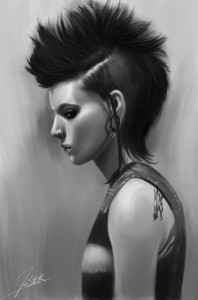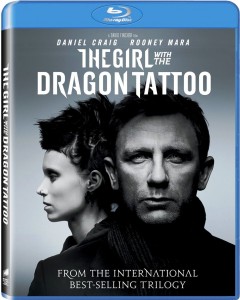 By Scott T. Allison and George R. Goethals
By Scott T. Allison and George R. Goethals
One of the most powerful underdog stories in recent fiction is that of Lisbeth Salander, the main character in Stieg Larsson’s best-selling Millennium Series trilogy. In several ways, Salander defies the classic hero prototype. She is a female hero in a world dominated by male heroes, and she is described as small, young, and anorexic looking – hardly the look of a hero. And as with Harry Potter, another slightly built fictional hero, people underestimate Salander and pay the dearest of consequences for their misjudgment.
The author, Stieg Larsson, was himself an underdog. Larsson worked as a little-known journalist and photographer in Stockholm, Sweden. A political activist, Larsson spent years writing the Millennium Series at home at night after work, with no one knowing about his pet project until 2004 when he finally sought a publisher. Tragically, just before the novels were published, Larsson died of a heart attack at the age of 50. He never lived to witness the remarkable success of his trilogy, which has sold more than 70 million copies worldwide and has spawned a highly successful movie franchise.
The lead character of Lisbeth Salander is Larsson’s crowning achievement as an author. Few fictional characters carry more gripping emotional power.  As a child, Salander witnesses her father, named Zala, brutalize and cripple her mother. Because Zala is important to Sweden’s central intelligence agency (SAPO), he is shielded from prosecution. One day, after witnessing Zala savagely attack her mother once again, Salander dowses him in gasoline and sets him afire, causing massive lifetime scarring over most of his body.
As a child, Salander witnesses her father, named Zala, brutalize and cripple her mother. Because Zala is important to Sweden’s central intelligence agency (SAPO), he is shielded from prosecution. One day, after witnessing Zala savagely attack her mother once again, Salander dowses him in gasoline and sets him afire, causing massive lifetime scarring over most of his body.
To protect Zala, unscrupulous elements within SAPO arrange for Salander to be judged incompetent, institutionalized, and abused by an evil psychiatrist named Teleborian. Upon reaching adulthood, Salander is released from the hospital but is required to report to a guardian of the state, who is a friend of Zala’s. The guardian eventually rapes Salander in a most brutal manner. He is yet another man who has underestimated her. Recognizing that police officials will not bring her rapist to justice, she exacts revenge by raping him herself and carving a full-body tattoo on him that reads, “I AM A SADISTIC PIG, A PERVERT, AND A RAPIST”.
For some fans of the Millennium Series, Salander’s violent vengeance on Zala and on her guardian precludes her from attaining the status of hero. For others, Salander’s actions are heroic responses to a society that repeatedly abuses her (and other women) with impunity. We’ll leave it to you to make the call.
Later in the trilogy there are other formidable men who also make the mistake of harming Salander and then underestimating her ability to inflict far greater harm on them. These individuals include Zala, Teleborian, and others.  Salander’s aggression toward men is always in self-defense and arises from the fact that SAPO has doctors and law-enforcement in their back pocket. In the end, Salander finds a way to out-wit SAPO and bring the responsible parties to justice. And this is another key to Salander’s heroism: She is extraordinarily intelligent and uses her cunning and her computer skills to stay one move ahead of her adversaries.
Salander’s aggression toward men is always in self-defense and arises from the fact that SAPO has doctors and law-enforcement in their back pocket. In the end, Salander finds a way to out-wit SAPO and bring the responsible parties to justice. And this is another key to Salander’s heroism: She is extraordinarily intelligent and uses her cunning and her computer skills to stay one move ahead of her adversaries.
Lisbeth Salander is the ultimate underdog. Her penchant for prevailing over men who have power over her, and who abuse that power, makes for a riveting story. Although author Stieg Larsson is no longer with us, he has left a rich legacy in his writings of an unforgettable character whom you don’t ever want to cross in Lisbeth Salander.
– – – – – – – – – – – – – – –
I’ve never read these books, so I can only respond in generalities. It’s too bad the writer is no longer with us to share his thoughts, because it seems to me that he had some issues.
I would not certainly not give this character the status of hero. More like someone who was driven to inhuman lengths by endless abuses in this Dystopian world; she needs mental health care, not a medal. Perhaps she was heroic in out-witting the evil government agency and bringing the villains to justice, rather than simply returning their brutality in greater measure, but there seems to be more fetishism than heroism going on here.